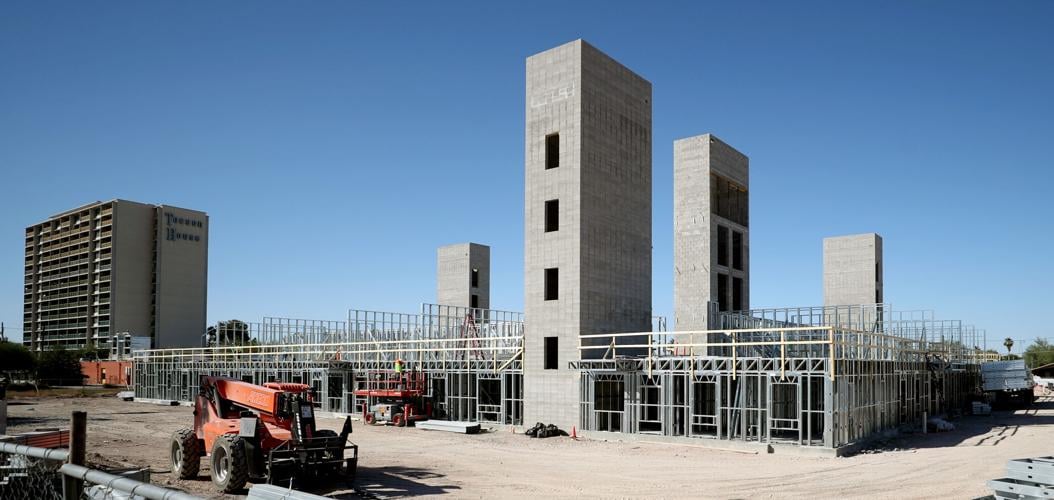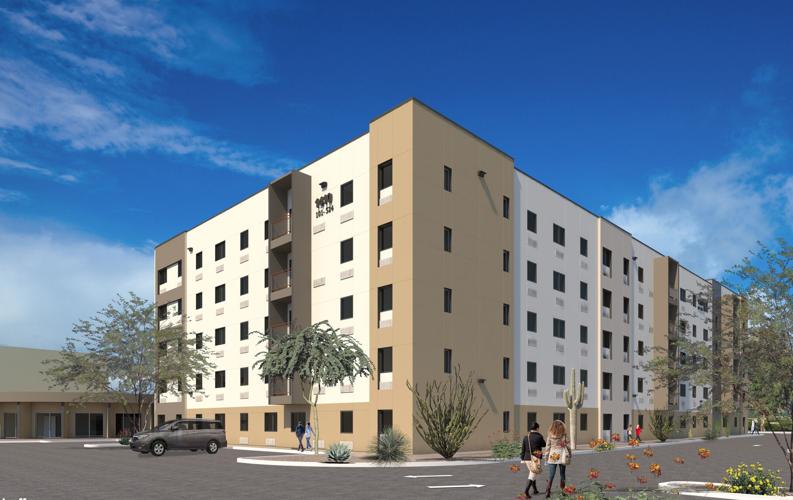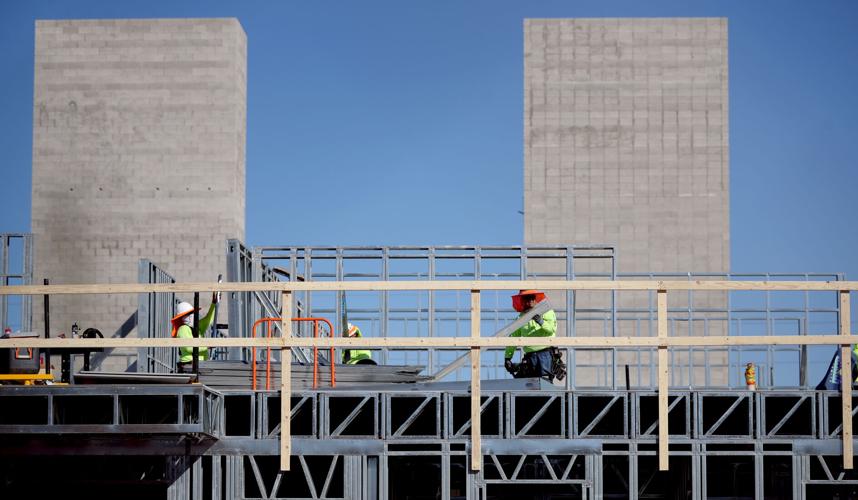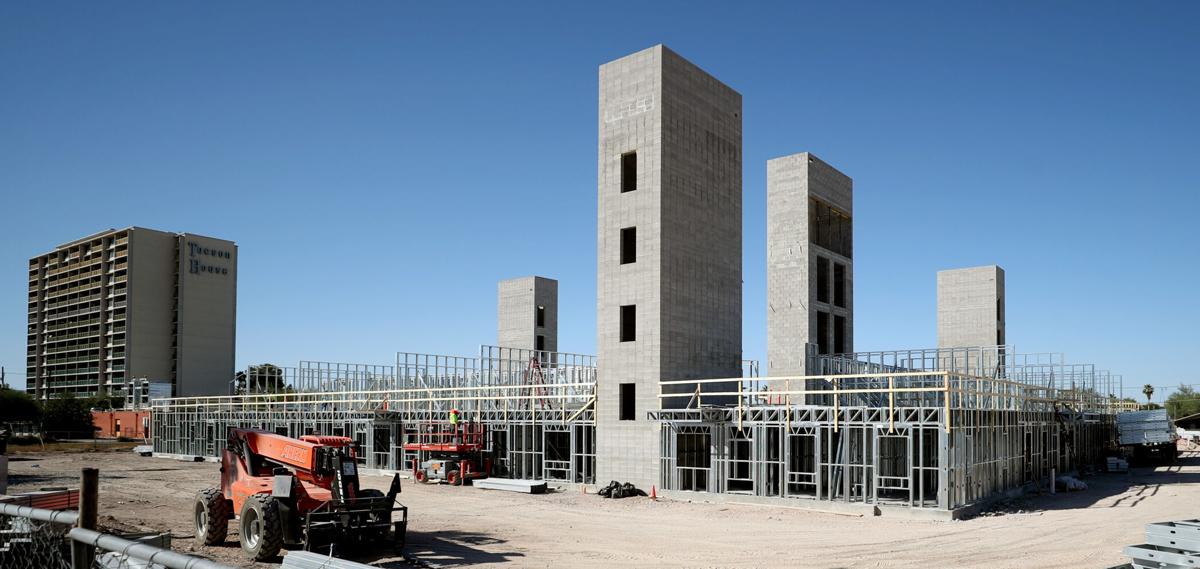Nearly 200 affordable housing units are opening up in the Tucson market as rents continue to climb, and a new program is encouraging developers to get in on the action.
As the cost of rent rapidly escalates, the need for affordable housing has become urgent, officials say.
With funding from the state and national Housing Trust Fund, $24.5 million is available for projects financed with low income housing tax credits for up to $2 million per project, said Tom Simplot, director of the Arizona Department of Housing.
Previously, money was restricted to nonprofits but now, for-profit developers are welcome to apply, Simplot said.
He said a state analysis showed Arizona needs about 250,000 new housing units to meet the demand for affordable housing.
In Tucson, two new projects in the center of town — one recently completed and one under construction — offer respite for struggling families or seniors living on a fixed income.
Alborada Apartments — at 250 E. Grant Road, near North Stone Avenue — recently opened 63 units for lease, offering one-, two- and three-bedroom models.
It was full 10 days after opening for lease, said Dan Ranieri, president and CEO of La Frontera, which developed the complex.
“A lot of people are buying and renting homes and the supply is not keeping up with the demand so consequently all the prices are going up,” he said. “All of our units are affordable while everyone else is jacking up their prices.”
La Frontera’s biggest complex to date, Gateway Apartments, on Oracle Road and Drachman Street, will have 120 units for seniors when it’s completed later this year.

A state analysis showed Arizona needs about 250,000 new housing units to meet the demand for affordable housing. This rendering shows what the Gateway Apartments for seniors will look like upon completion.
To qualify, residents must make less than 80% of area median income, which is about $53,000.
Most who live in La Frontera’s complexes make less than 60%, Ranieri said.
The monthly rent is calculated on the person’s income and cannot exceed 30% of total income.
“Tremendous need”
Ranieri said it’s difficult to get private developers interested because the profits are so high right now with market-rate apartments.
The average rent in the Tucson area is now over $1,000 a month and some luxury units downtown command rents of up to $4,000 a month.
“This is not an easy business,” he said. “You cannot take any money out of the project for at least 10 years and any surplus must go into an account for maintenance and repairs and the asset has a 30-year affordability restriction on it.”
La Frontera has a partnership with private developer and consultant, Jason Hisey, founder of The Hisey Group.
“We couldn’t do it without him,” Ranieri said. “It’s great to have a developer that lives here and does not walk away from the projects.”
Hisey, a former Wildcats baseball pitcher and coach of area high school baseball teams, got involved with affordable housing in the 1990s while working as the facilities coordinator for Cope Behavioral Health.
“There’s such a tremendous need,” he said. “The affordability gap is so great that we have households paying 50% of income toward housing.”

Crews erect walls on the second story at The Gateway Apartments. It's difficult to get private developers interested in building affordable housing because the profits are so high right now with market-rate apartments.
Since starting his business 20 years ago, he has built about 800 affordable housing units around town, including units for the elderly, chronically homeless, developmentally disabled and families.
Hisey’s role with nonprofits, such as La Frontera, is to acquire identified land, fill out all the government paperwork for eligible funding, get all entitlements and permits, build and then serve as property manager.
“We’re there from start to finish,” Hisey said. “Problem is there isn’t enough inventory to handle the need.
“After 20 years, we’ve not even put a dent in it.”
Developers interested in learning more about or applying for the new state funds can visit housing.az.gov and click on “housing partners.”






